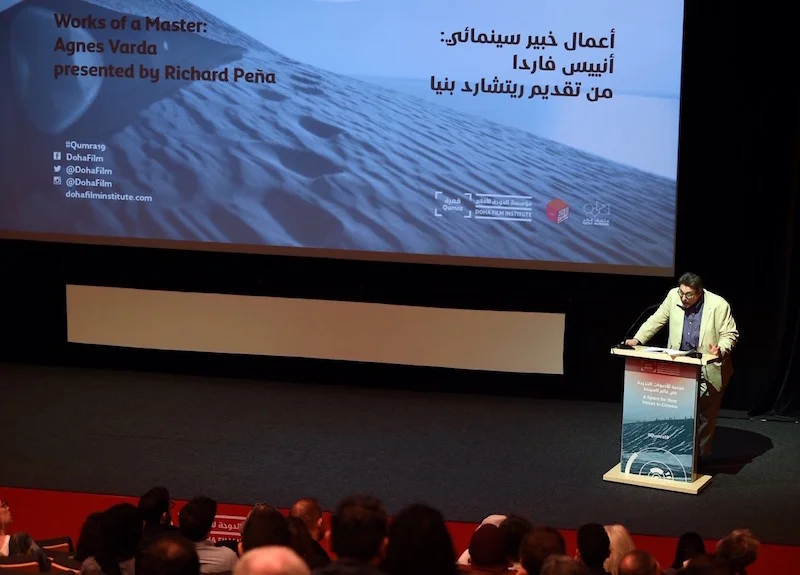It is obvious from the moment one steps on a Qatar Airways aircraft that cinema is important in Doha. I mean, just going through the entertainment system on my particular flight, I found ‘Rebecca’ by Hitchcock, Barry Jenkins’ hauntingly touching and all too true ‘If Beale Street Could Talk’, Paul Dano’s intimate portrayal of a family struggling to remain a single nucleus ‘Wildlife’ and even the 2019 Best Picture Oscar winner ‘Green Book’.
Qatar knows good cinema and nowhere is that better understood than in the welcoming arms of the Doha Film Institute.
On my first night in town I enjoyed a meal with friends, discussing cinema throughout of course, and a walk through the atmospheric Souq Waqif, its alleys and square overflowing with the local crowds out to enjoy their Friday night. When I say that as a woman I feel most free in the Arab world, and in particular here in Qatar some may scoff. But where else can a lone, solitary woman walk unaccompanied, unarmed and never bothered in both a sea of people and through deserted side streets? Forget what they’d have you believe on the news. This is where true freedom and civilization is. We’ve forgotten all about those words in the Western world.
Richard Peña conducts a masterclass honoring the work of Agnès Varda at this year’s Qumra
It seemed only right that DFI should find a way to introduce me to Agnès Varda’s earlier work, right here during Qumra, their annual event bringing together filmmakers, media, film programmers and sales agent. The great cinephile, former NY Film Festival artistic director and cinema studies professor Richard Peña put together a wondrous masterclass highlighting Varda’s best films but also narrating her far from ordinary life and point of view. I mean, I’d watched ‘Faces, Places’ in Cannes, got to interview Varda herself on a magical afternoon, but I’d never ventured further than that when it came to her older work.
Like an ocean first beheld at night, I didn’t know where or how to begin wading through the extensive and foreign waters of her films. I needed a mentor and in Peña, we all found our Varda mentor today.
It turns out that Agnès Varda’s work should be watched from beginning to end, chronologically as her films were created, which Peña himself advised during his talk. With each film, the auteur grew in mastery and message and only by watching it from her first film ‘La Pointe Courte’ which she made in 1955, does one get the full effect of her metamorphosis as an artist.
‘La Pointe Courte’ starring Philippe Noiret and Silvia Monfort
Varda always defined herself as a “Feminist” and her mantra, I found out through a short film that featured the red-haired 90-year old and kicked off the talk, is “Inspiration, Creation, Sharing.” Making films without those words in mind is simply unacceptable to Varda.
Yet as a woman myself, what struck me deepest and raised the little hairs on my forearm was when Peña talked about how Varda used “womanhood” to her advantage — choosing to feature in her films themes and ideas that male filmmakers would never choose to highlight. She is herself the gleaner, part of the community she explored in her 2000 film ‘The Gleaners and I’. But, instead of collecting the leftover potatoes and vegetable passed over during the harvest, Varda has collected stories unseen and unnoticed by her colleagues, thus magically creating her own brand of spellbinding cinema in the process.
And like a tightrope artist we watch entranced, because there is always the possibility they may take a wrong step and fall, Varda also enchants us with her missteps. Those moments when she may have tried something that simply didn’t work and, like the true beautiful human being that she is, picked herself up and continued her journey.
If I’ve tickled your appetite for her films, there is an Agnès Varda special happening on online streaming platform Mubi.


